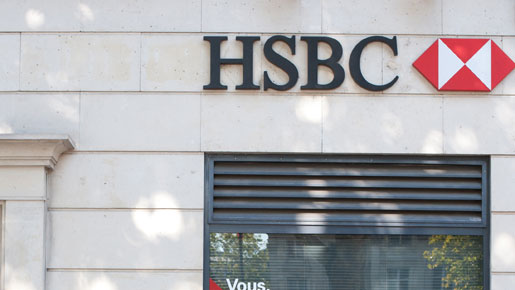
In Europe, the standout survey results came from Turkey, which registered the highest score of all the countries surveyed when questioned about a positive outlook for the future.
Considering the events we have witnessed shaping the world’s global financial markets over the past three years, and with economic uncertainty still featuring in many peoples’ outlook for the near future, it could be assumed that confidence among smaller enterprises would remain low.
And yet the latest HSBC Small Business Confidence Monitor tells a different story. Confidence is not only increasing, but is far from uniform when considered across global markets.
HSBC’s Small Business Confidence Monitor
This semi-annual monitor gauges the outlook of SMEs on local economic growth, capital investment plans and recruitment, surveying over 6,300 SMEs across 21 markets in Asia, the Middle East, Europe, North America and Latin America.
Globally, the outlook among SMEs as a whole is very strong. Most notable was the strong expectations when it came to future growth expectations, with 84 percent of SMEs saying they had a positive view towards local economic growth. This upbeat outlook is clearly feeding through into individual business plans, with the majority of enterprises questioned across the globe (87 percent) saying they plan to increase or maintain their capital expenditure plans in the next six months, while 95 percent of SMEs said they were planning to either expand or maintain their workforce.
Only five percent of SMEs had plans to cut staff over the next six months.
Emerging markets take the lead
The index’s results also gave an interesting insight into how the views of small businesses varied across different countries, with confidence in emerging markets notably higher than in developed markets. So why do emerging markets appear to be more confident than the developed markets? While it could be tempting to argue that the weakening of the Western economy would affect emerging markets, we think there are three key factors which suggest that emerging markets will continue to grow.
The first reason is related to trade. We know from our data, most notably HSBC’s quarterly Trade Confidence Index, that emerging markets are increasingly more likely to trade with each other than with more mature markets. For example, trade between China and Turkey rose from $1bn in 2000 to $12.6bn in 2008. These budding relationships means less reliance on trading with more mature markets, and as such less exposure to the negative trends we have seen affecting the economies of markets such as the UK and the US in recent years.
Secondly, with the low return on offer from Western assets, investors are more likely to turn their focus to speculating on newer opportunities for growth, which means more income pouring into the coffers of emerging markets. Finally, the current high price of commodities means we are likely to see a major redistribution of income from Western markets into countries with a growing commercial presence. All three of these are solid reasons why confidence is likely to continue to increase in emerging markets.
And yet the strong picture for newer markets should not cloud the fact that in the markets traditionally seen as more developed, confidence and positive sentiment were also still increasing. In North America, confidence was up 12 points (on a scale of 0 to 200) with the developed markets as a whole showing a nine-point increase up from 106 to 115 when compared to results from the last quarter of 2009.
The picture across Europe
In Europe, the standout survey results came from Turkey, which registered the highest score of all the countries surveyed when questioned about a positive outlook for the future. Turkey also showed the biggest jump in confidence, with 56 percent of the country’s SMEs saying they expect the pace of growth to increase, and was where SMEs were most likely to increase their capital expenditure and to ramp up the recruitment of staff. These developments are perhaps not surprising given Turkey’s close links with other emerging countries, such as China; in addition to several new commercial agreements between the two countries, hopes of reviving the ancient silk route linking Asia and Europe would be good news for Turkey’s textiles industry, which has traditionally accounted for a third of all industrial employment in the country.
Further west in Europe however businesses’ optimism was more muted, with only 10 percent of SMEs in Western Europe saying they expected the pace of growth to increase, although this is still a long way from constituting a negative outlook.
Where to next?
So what does all this mean for businesses across Europe, and the world? With confidence up across the board, SMEs are now well placed to consider the opportunities the upturn will present. The high percentages of companies who said they planned to increase their expenditure, or grow their workforce, will need to ensure they have factored this growth into their business plans. Similarly, are there new markets that SMEs should be considering, and if so how can they target these appropriately? (For example, HSBC’s recent report Looking East found successful exporters to China need to get into the mindset of the Chinese consumer, as opposed to simply assuming goods or services that worked well for Western audiences will fit the bill in a new market). And of course, SMEs should ensure they have the appropriate banking support in place to help them achieve their growth aims.
Not only do SMEs form a vital part of a country’s local economy, but their collective impact is huge. With that in mind HSBC continues to focus on using our global reach and local expertise to help businesses realise the opportunities that the upturn will present.
HSBC’s Small Business Confidence Monitor
Emerging markets include
Hong Kong
India
Indonesia
China
Malaysia
Singapore
Taiwan
Vietnam
Egypt
Qatar
Saudi Arabia
UAE
Turkey
Argentina
Brazil
Panama
Mexico
Developed markets include:
US
Canada
UK
France

